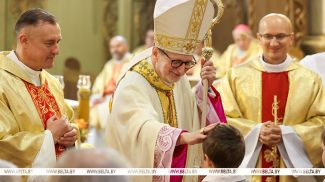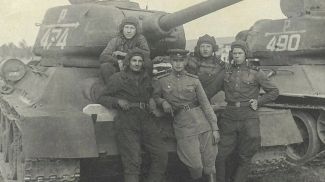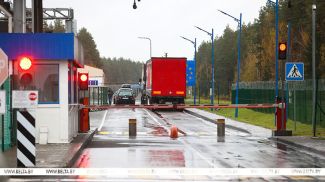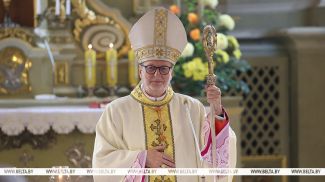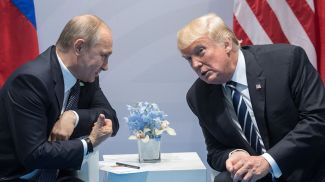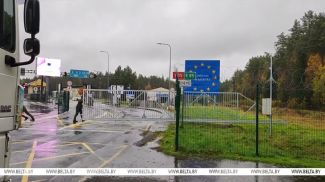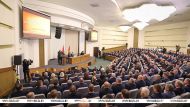
The second day of the Festival of National Cultures in Grodno was as lively and eventful as the first day. Representatives of various ethnicities demonstrated their culture at a dozen pavilions. Russians, Belarusians, Ukrainians, Lithuanians, Poles, Italians, Argentines, Chinese, Sri Lankans, Egyptians… It seemed that almost all regions of our planet were represented in Grodno in one way or another!
Showcase your own culture and learn more about others.
Vladislav Ruta lives in Minsk. He has Argentine roots. The man’s father was from Buenos Aires, which is many thousands of kilometers away from the Belarusian capital.
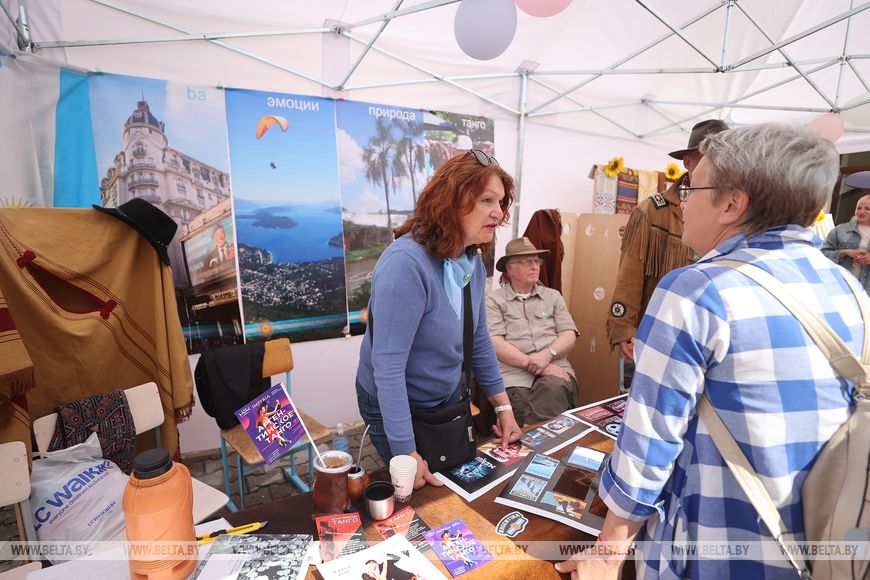
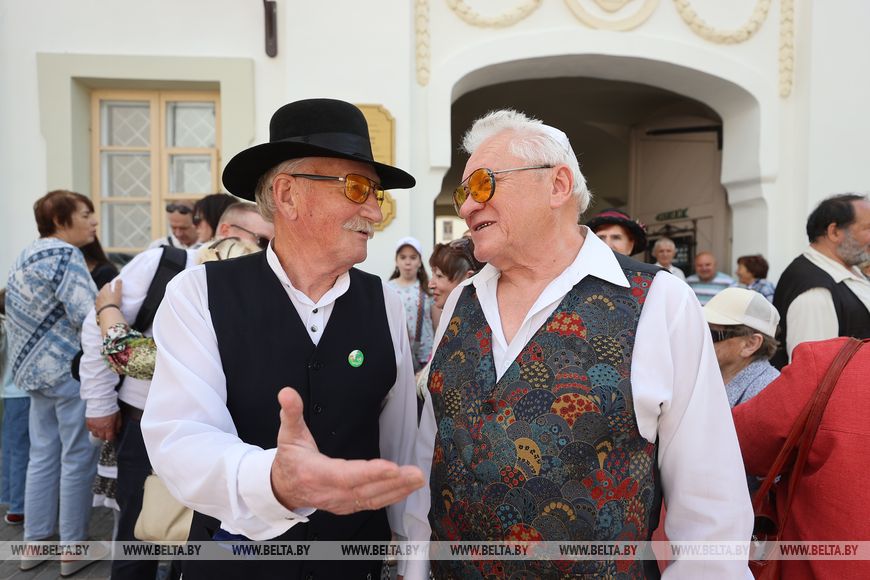
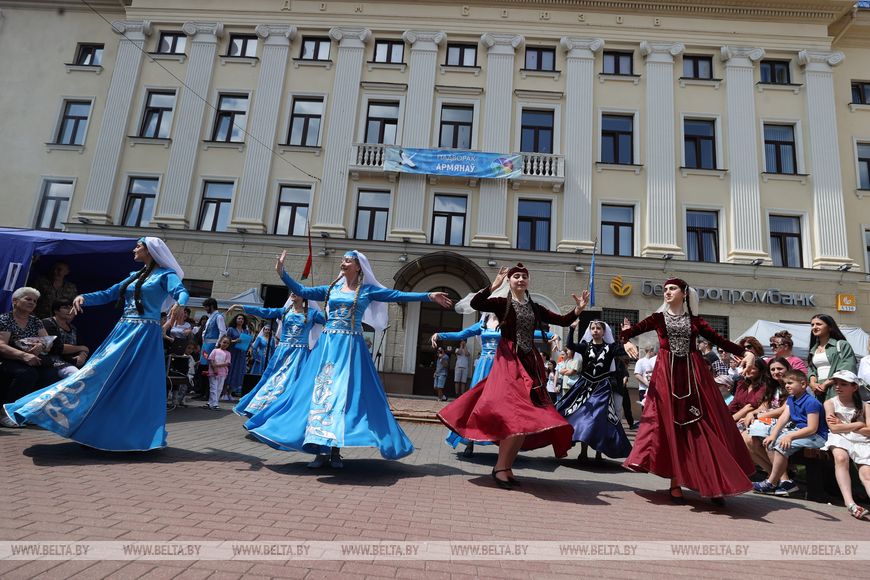
The culture of Argentina was represented in Grodno among other cultures. Vladislav admitted that he participated in the festival for the first time. Surprisingly, he was inspired by the festival itself.
"I am taking part in the festival for the first time. Before that, I was here twice and decided that I needed to show the Argentine culture too. My father was born in Buenos Aires, so I have a connection with Argentina. Thanks to the Festival of National Cultures, you can present not only your own culture, but also learn about others," Vladislav Rūta believes.
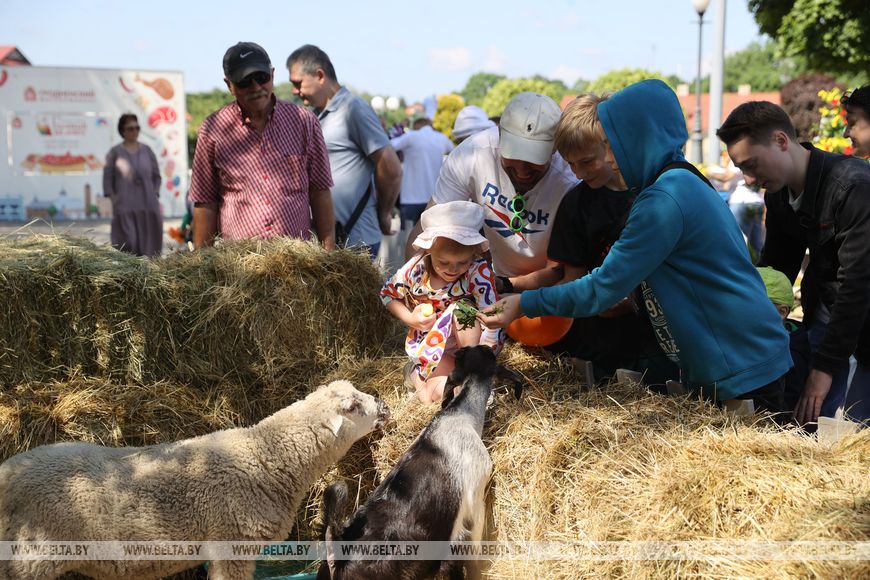
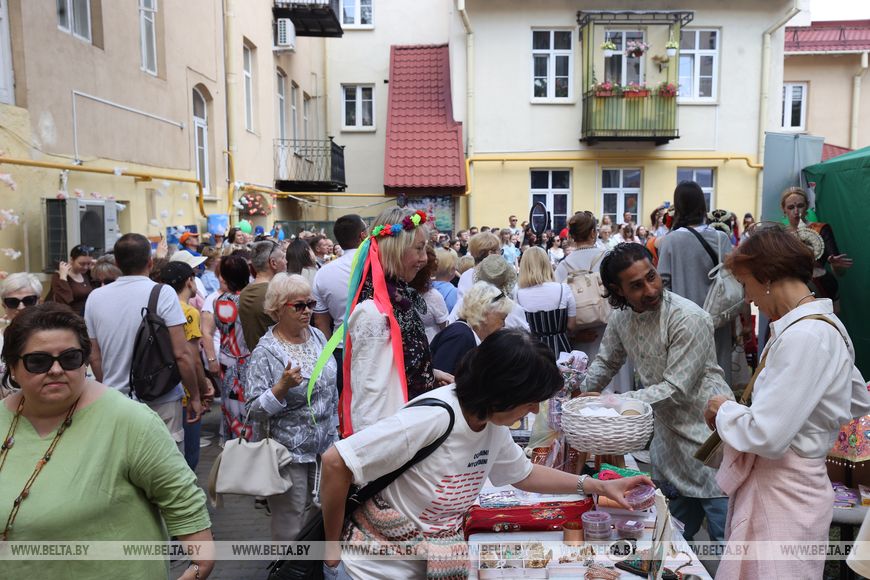
At the pavilion that showcased the most recognizable elements of Argentine culture, the man treated visitors to the South American drink mate and gave them commemorative postcards.
Every nationality has its own thing
Maksim Markwald, who represents the German diaspora, came to Grodno from Gomel. Maksim's parents are ethnic Germans from Tajikistan. "When the Soviet Union collapsed, some returned to Germany, but my parents moved to Russia’s Bryansk Oblast," Maksim shared his family story.
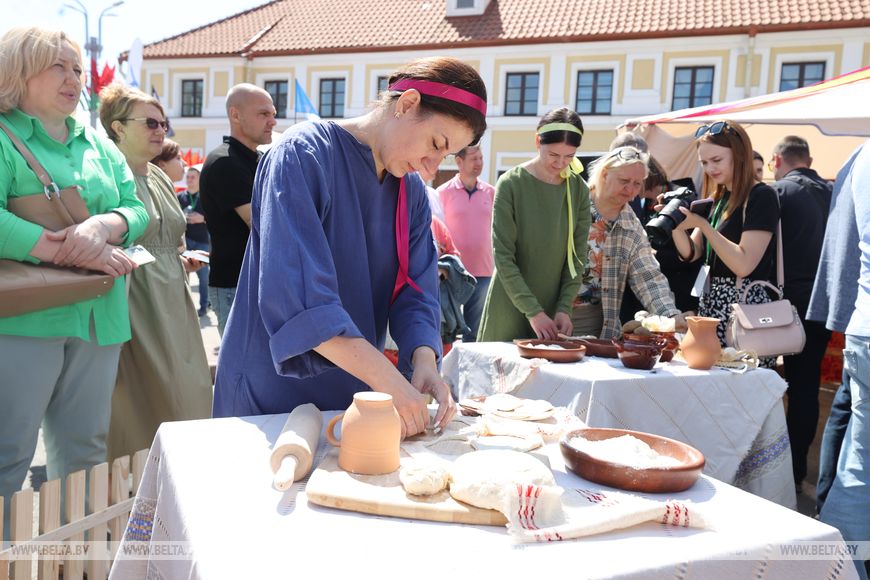
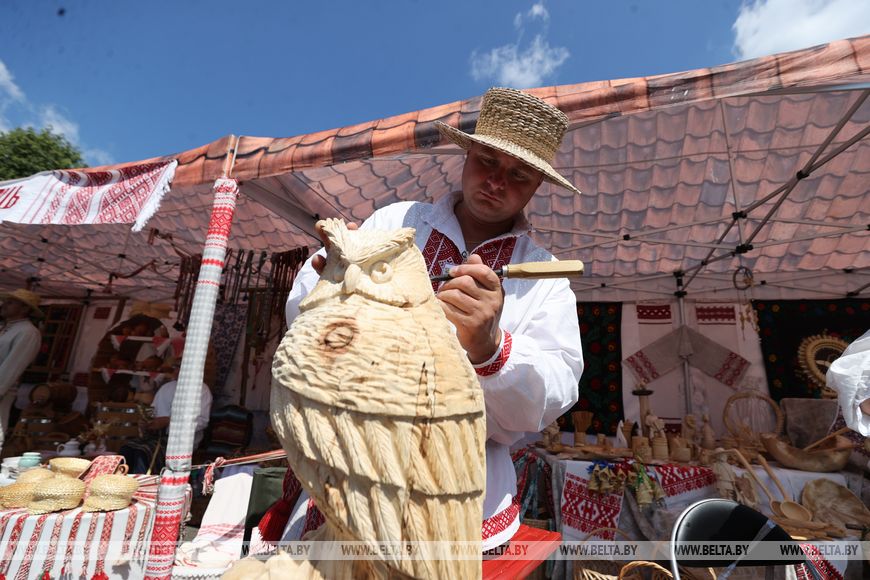
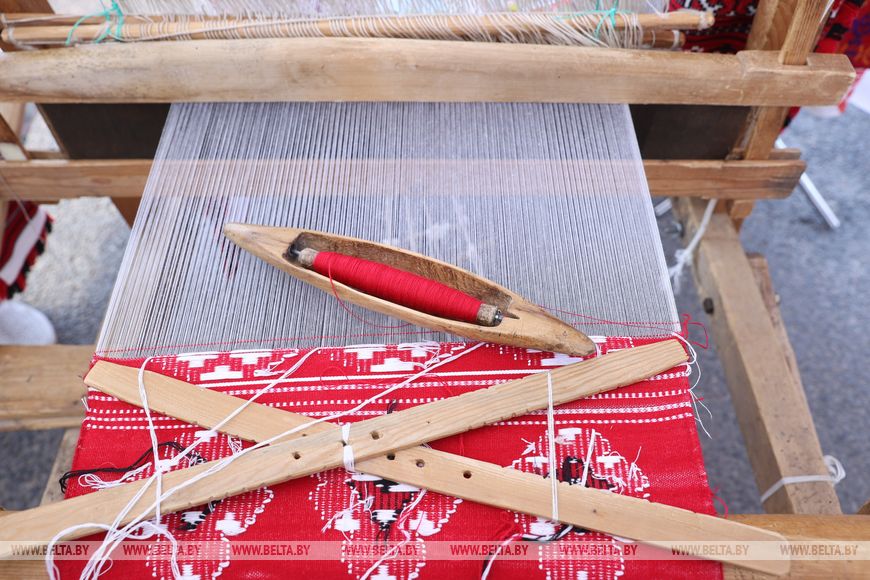
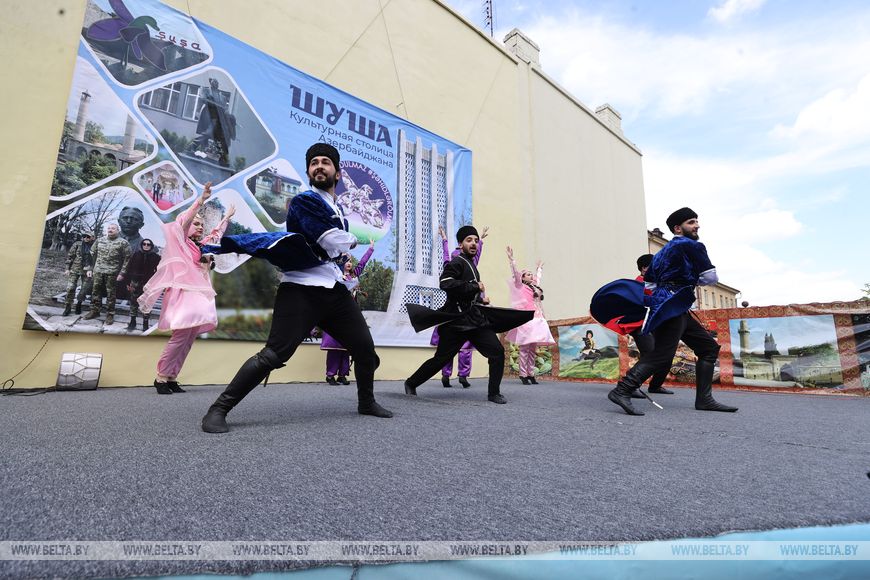
The man got his first job assignment in Gomel. It was there that he met his future wife and decided to stay in Belarus. He believes that the traditions of your parents should be honored and remembered. The Festival of National Cultures provides such an opportunity. By the way, Maksim Markwald took part in it for the fourth time.
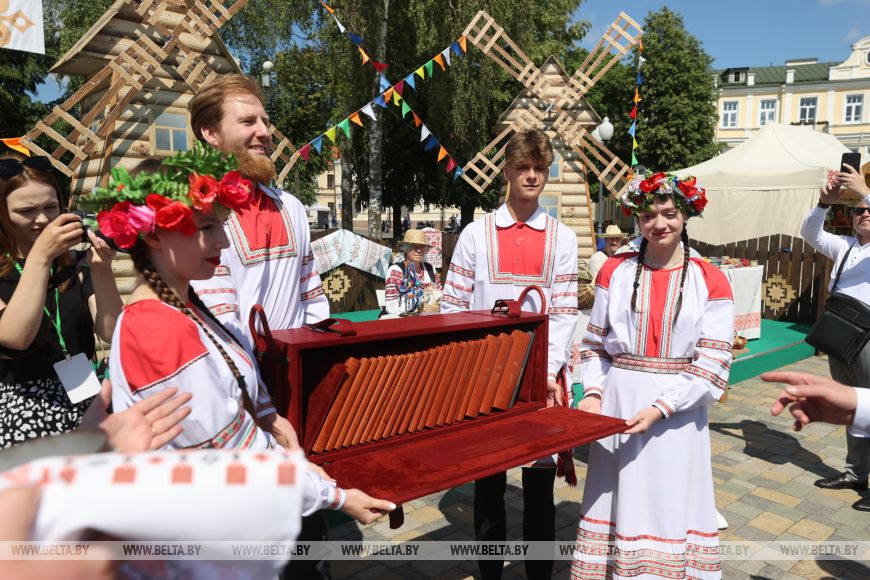
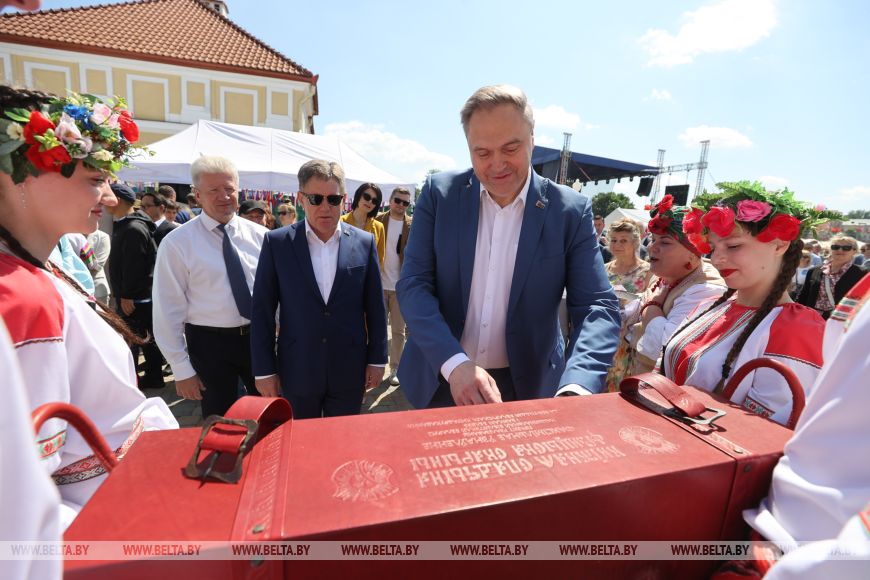
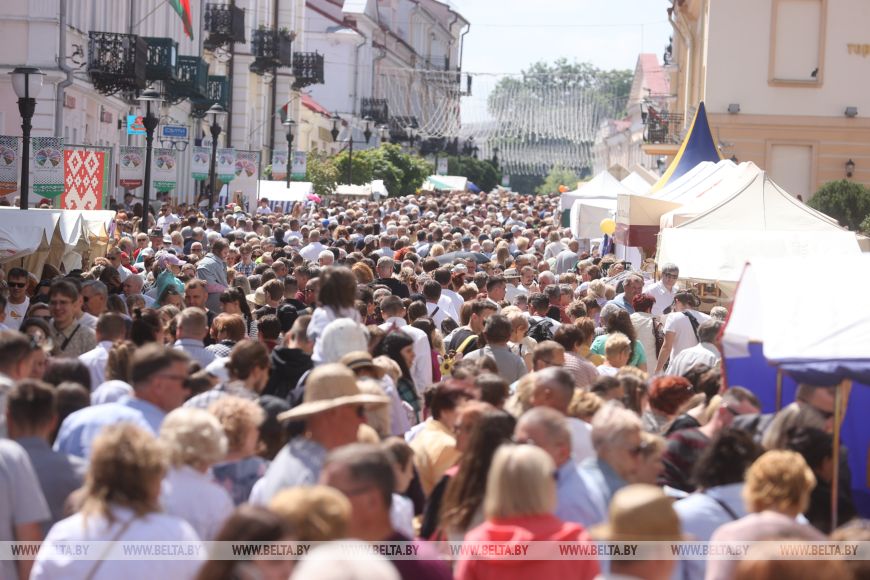
"The atmosphere is great here, and people are super friendly. We need more events that unite people," Maksim Markwald believes. “I am sure that there are no bad nationalities. Each has its own things, positive sides. These differences are our strength."
It is very nice to come to a place where you are welcome
Marina Hikbatova came to the festival in Grodno from Bragin District. The woman has been living in Belarus for 33 years. Marina's husband is Belarusian, and it was for him that the girl, originally from Uzbekistan’s Bukhara, came to Belarus. The young people met many years ago on Sakhalin where both worked at that time.
The family planted their rooted in Belarus. Their son Daniil also lives in Gomel Oblast, not far from his parents. Marina has a granddaughter. And everyone likes life in Belarus.
"I work as the head of a community center in the village of Kirovo. I preserve and multiply Belarusian traditions, folk rituals, and costumes. I also do not forget about Uzbek ones," Marina Hikbatova said. “It's very nice to come to a place where you are welcome. Grodno is always hospitable. Here you have the opportunity to communicate with people of different nationalities and with your fellow tribesmen too. We already hosted diplomats from the Embassy of Uzbekistan in Belarus. Uzbeks are very hospitable people. Belarusians, too, love to host guests."
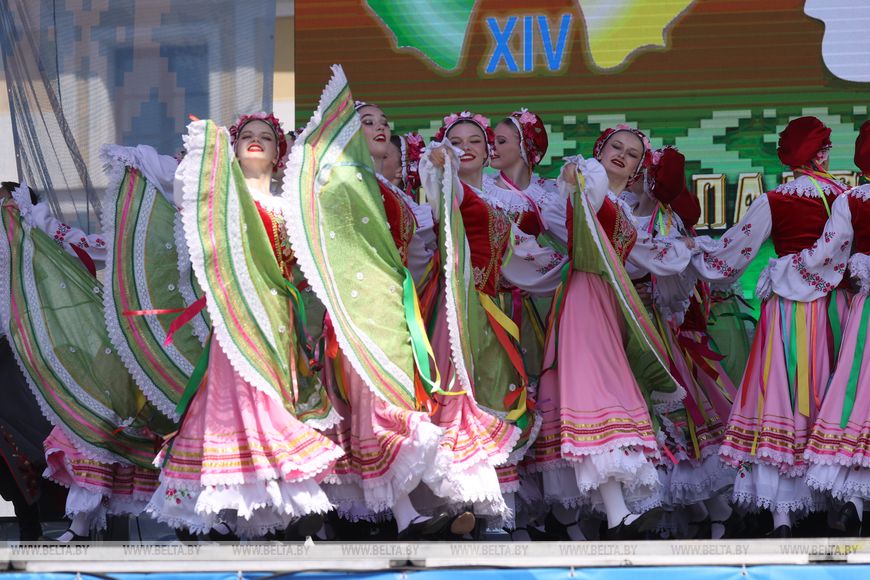
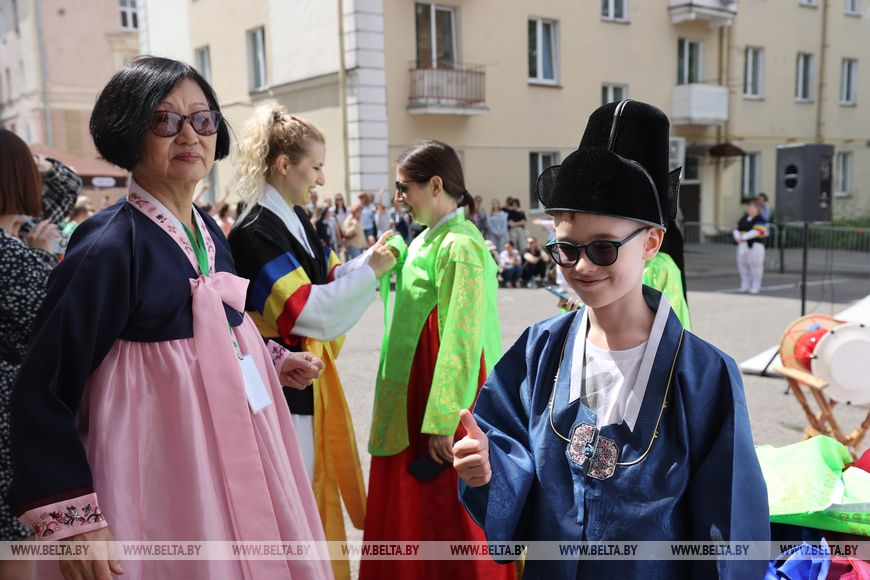
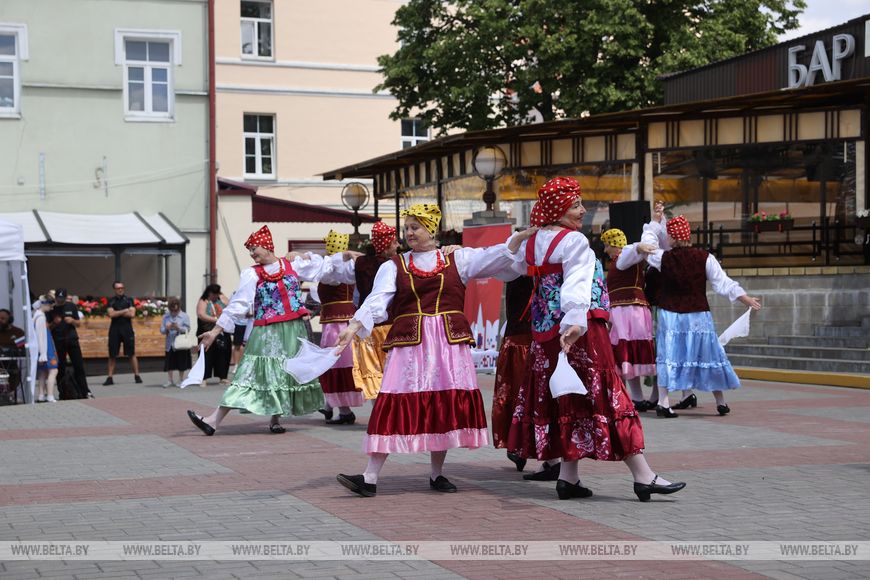
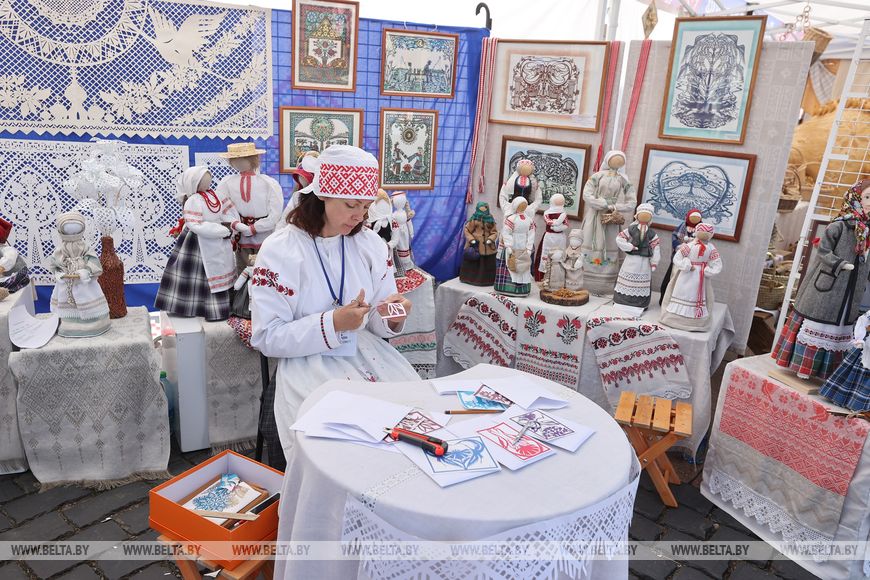
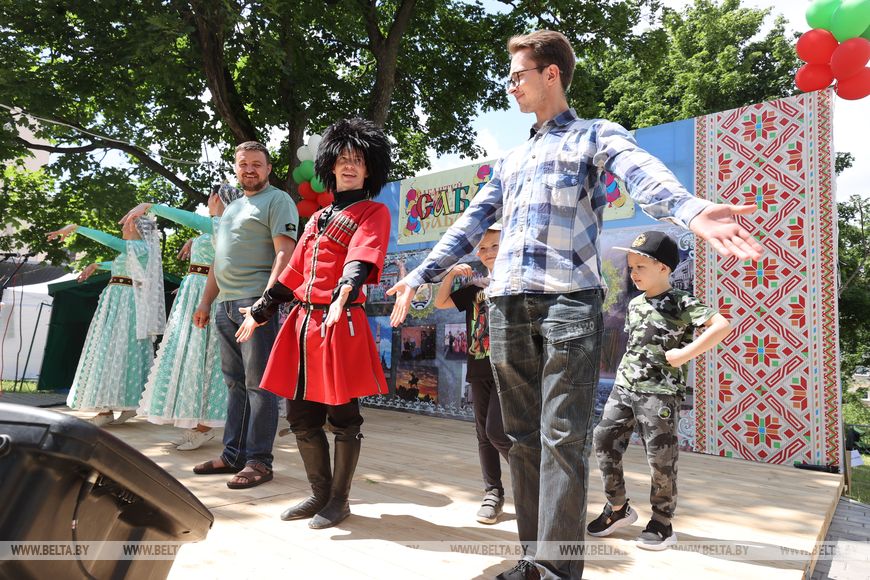
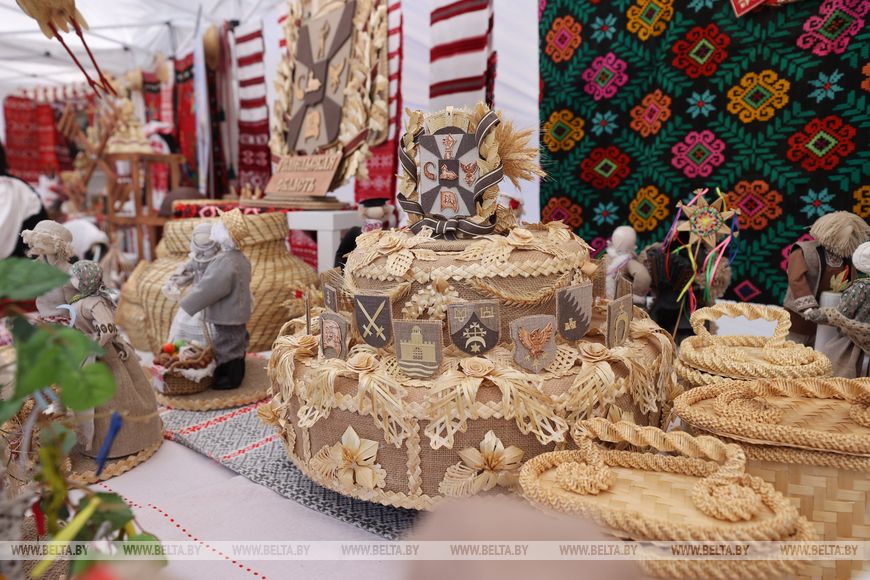
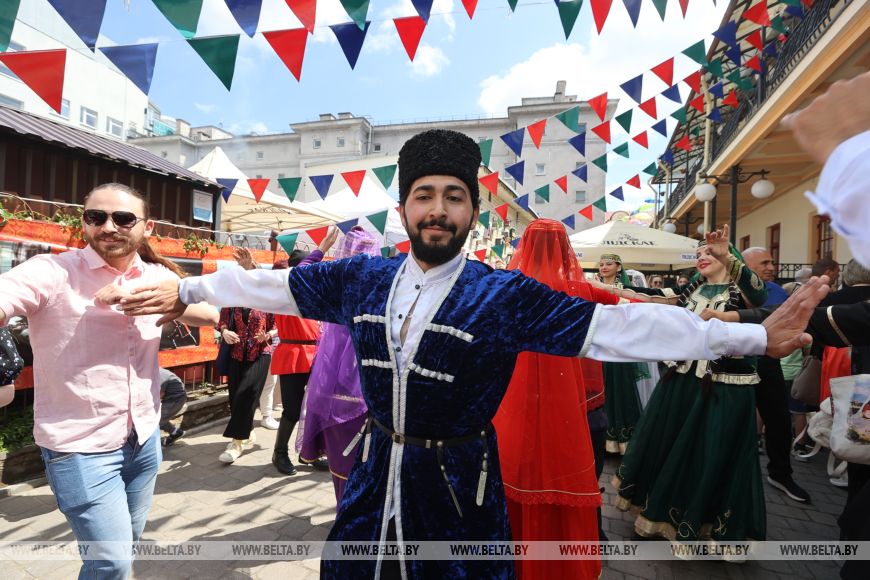
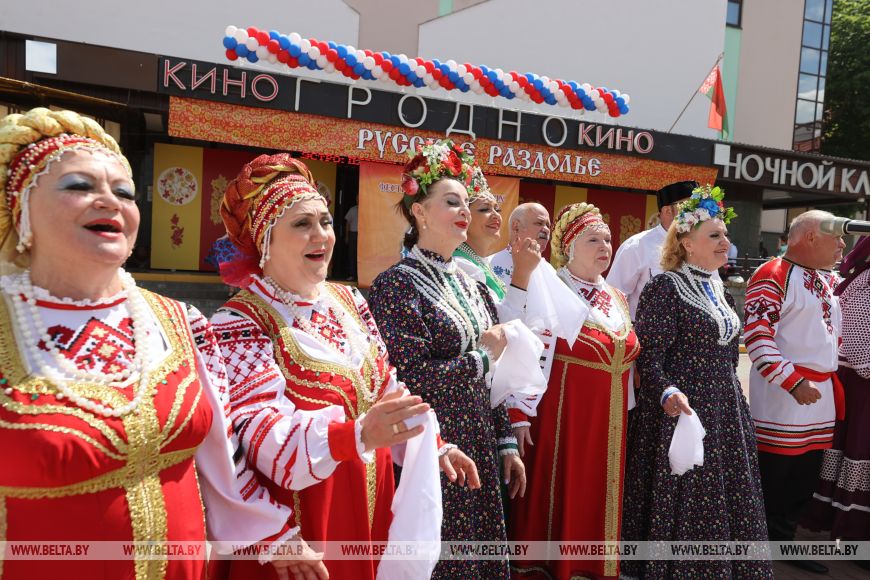
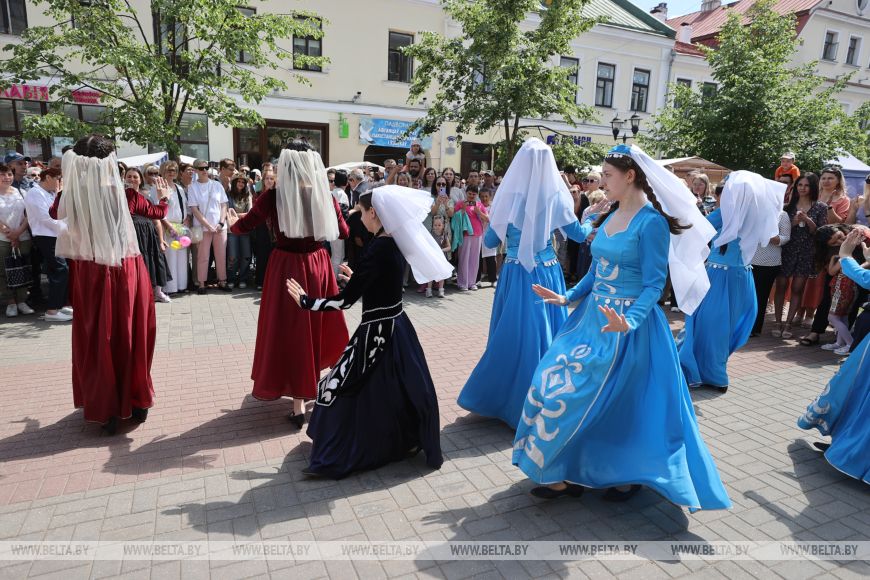
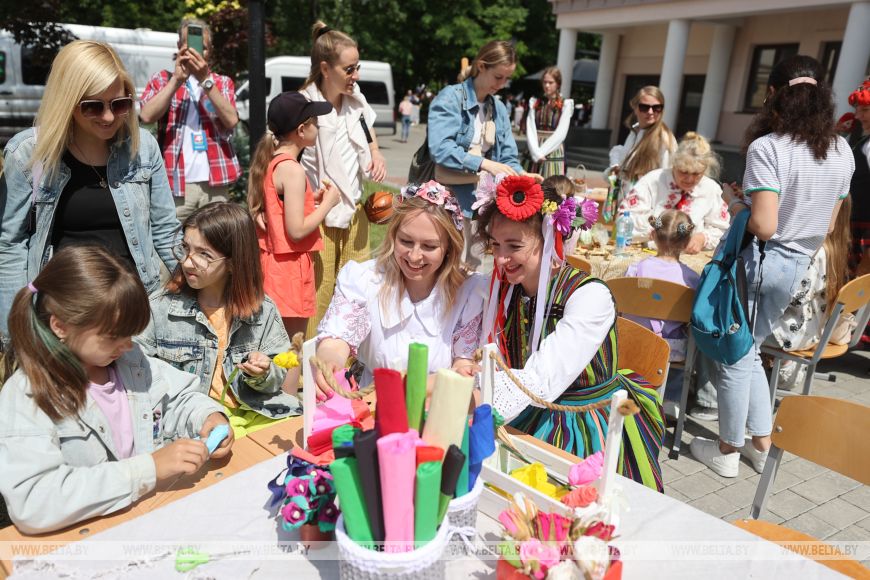
We watch, listen and learn
Among the participants of the festival were representatives of the folk group Volnitsa from Bobruisk, who performed at the Russian Pavilion.
"We work at the art and community center in Bobruisk. We perform Russian folk songs, Cossack songs and, of course, Belarusian ones. Now the group consists of 19 amateur artists. We have come to the festival in Grodno for the second time," the head of the group Vyacheslav Bolda said.
The man hailed the warm welcome in the city. According to him, the audiences are friendly. People sing along and even dance along. The festival itself, according to the guests from Bobruisk, is beyond praise. The artists have already seen the neighboring national pavilions.
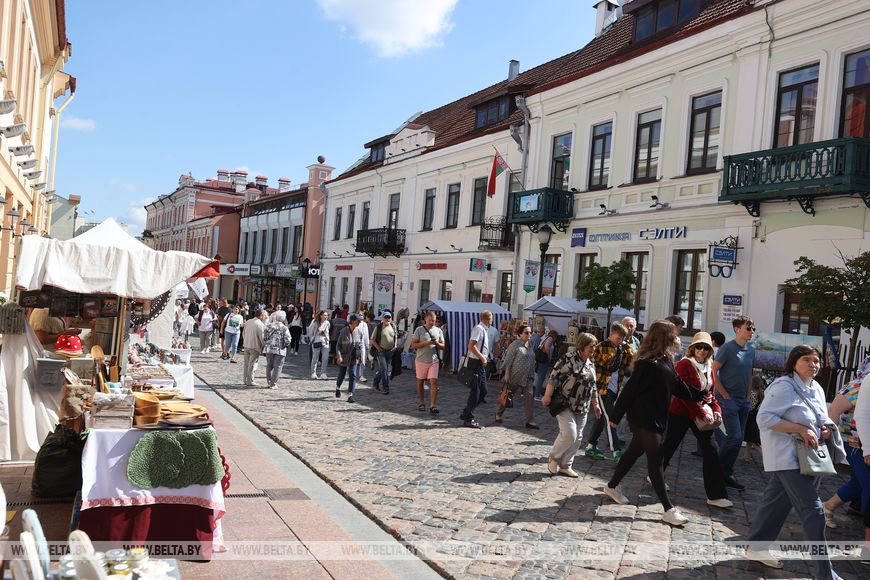
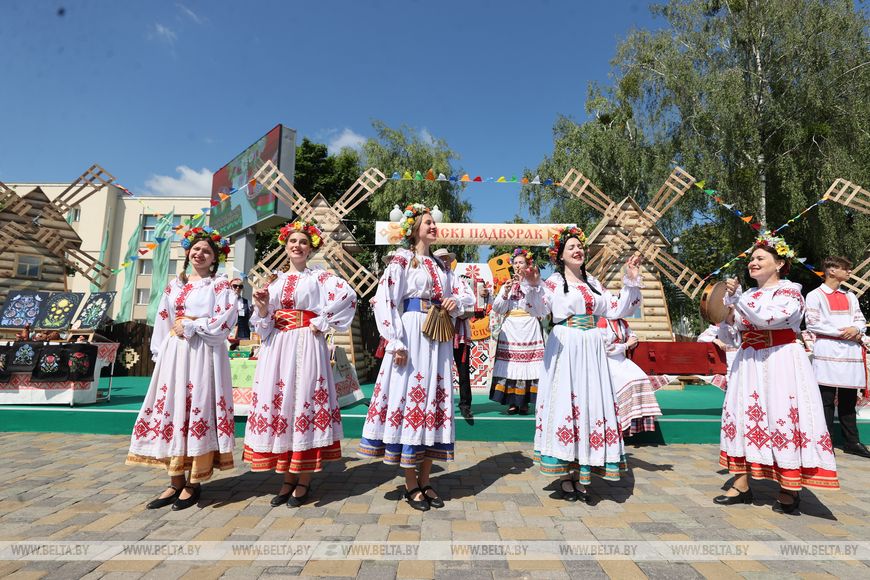
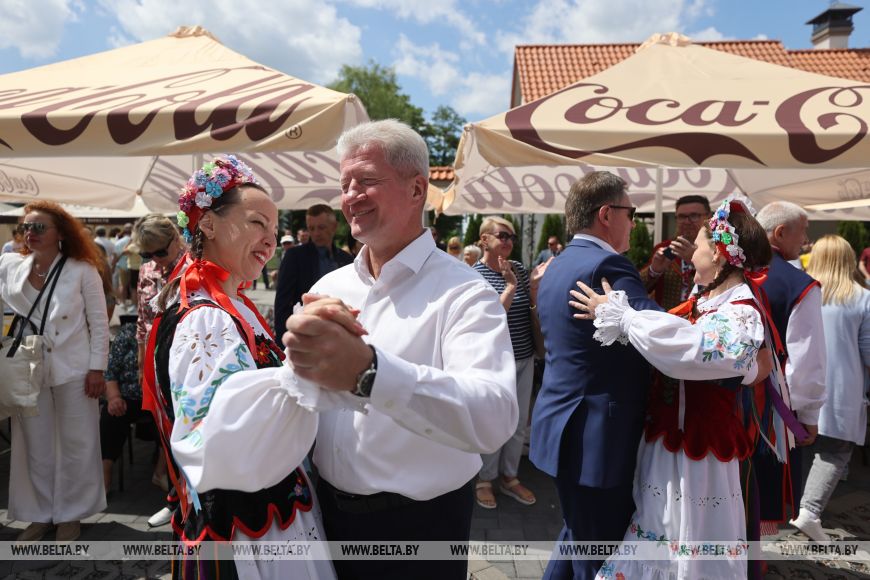
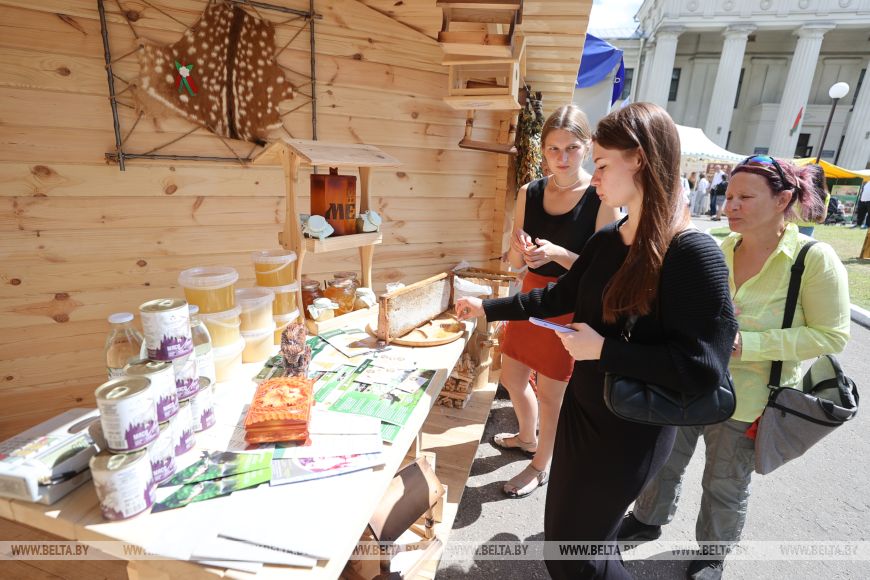
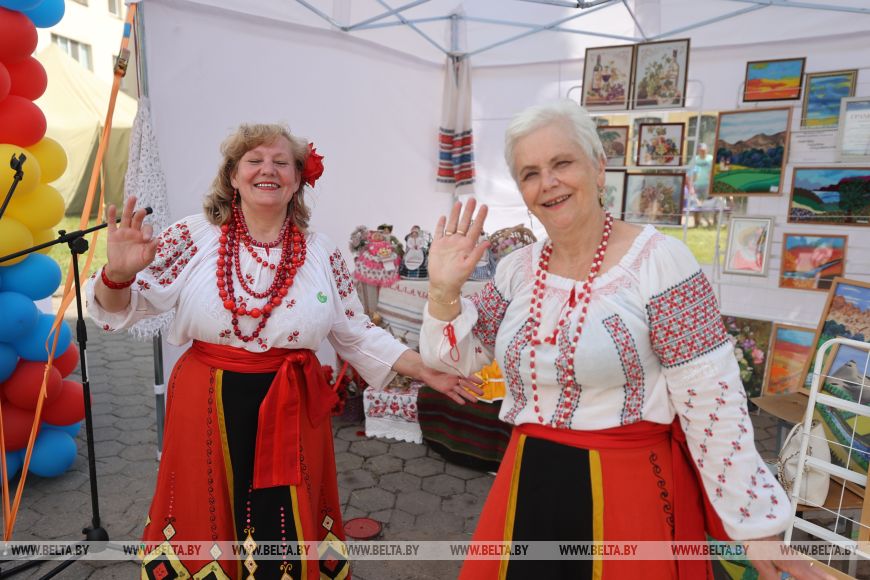
"We watch, listen and learn. We even make adjustments to our program on the go," Vyacheslav Bolda noted. "The festival is a creative exchange of experience."
Cultural diversity and friendliness are impressive
Situmi Mirsuri from Sri Lanka has been living in Belarus for four years. The young woman is attending Grodno State Medical University. She has attended the festival before but it was her first time as a participant of the multinational holiday.
Situmi has a beautiful voice. Together with a fellow countrywoman, she sang a melodious song, which won applause from the audiences gathered on Sovetskaya Square.
"It was very exciting," Situmi shared her emotions as soon as she stepped off the stage. “Impressions are the most incredible! It's so great to sing for an international audience. Even if not everyone understands the lyrics of the song, they appreciate its melody and beauty."
By the way, there is a large Sri Lankan community at Grodno universality. More than 400 students from Sri Lanka study at the university. Many actively participate in concert programs, including at the festival.
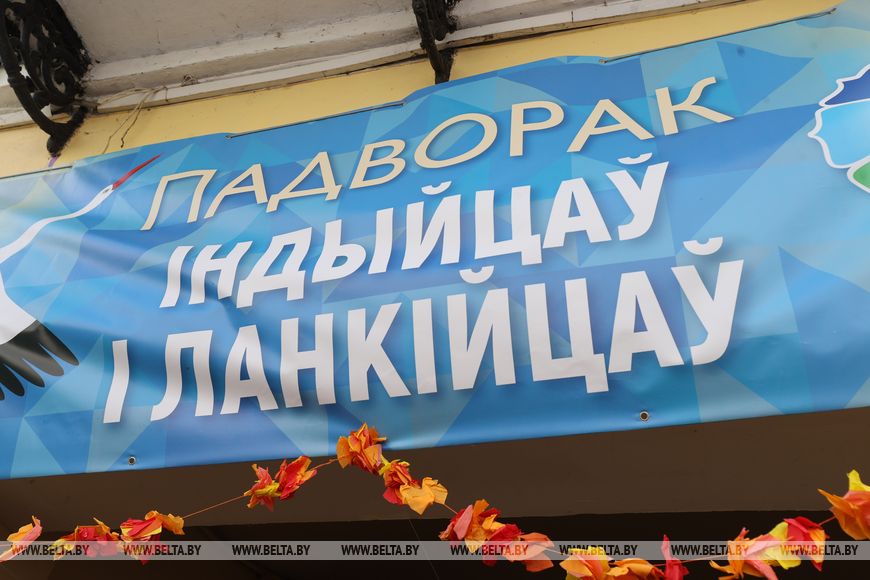
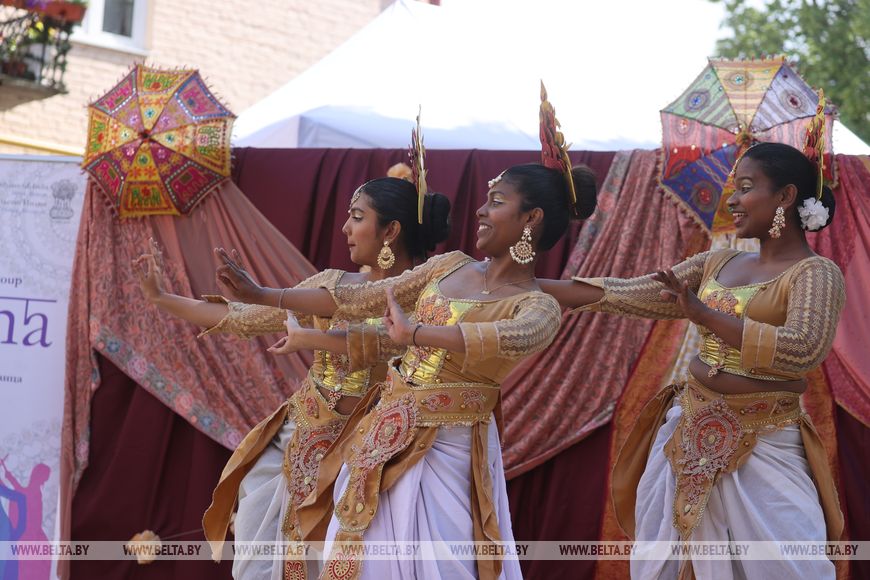
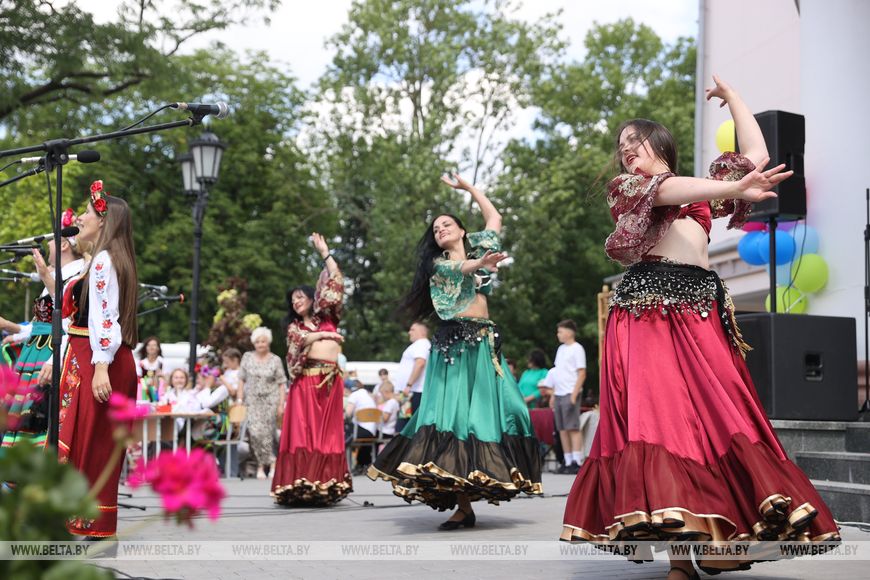
"Today we met many young people of different nationalities," Situmi said. "We are very impressed by everything that is happening on the streets of Grodno. The festival took over the entire center, there is a huge number of guests, everyone is friendly, cheerful, enjoying the unique opportunity to travel around the world in a few hours, and get the feel of cultural diversity. A wonderful holiday! All my fellow countrymen-students share this opinion."
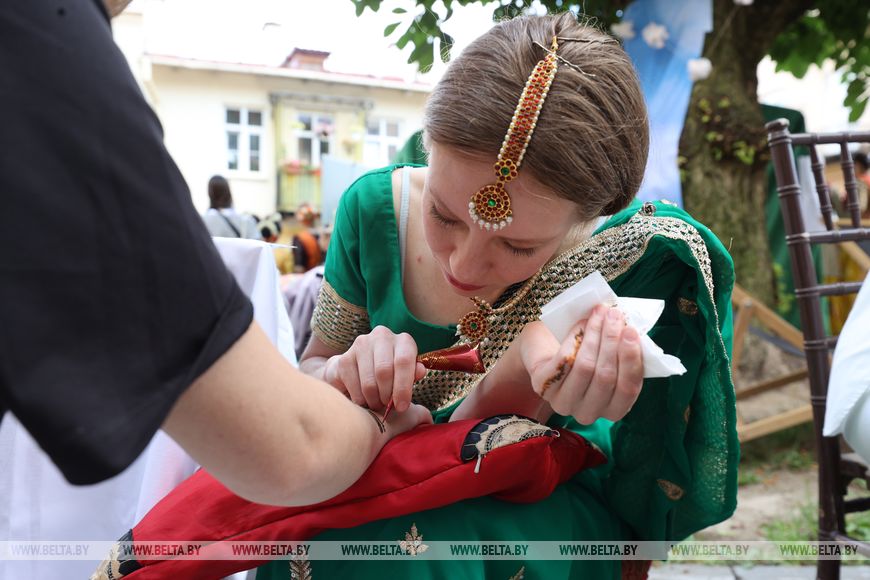
The holiday is expanding, adding more colors
Dzhenetta Dmitrenko, who came to Grodno from Minsk, is an old-timer of the festival. The woman took part in it about ten times, so she can appreciate how the festival has changed over the years.
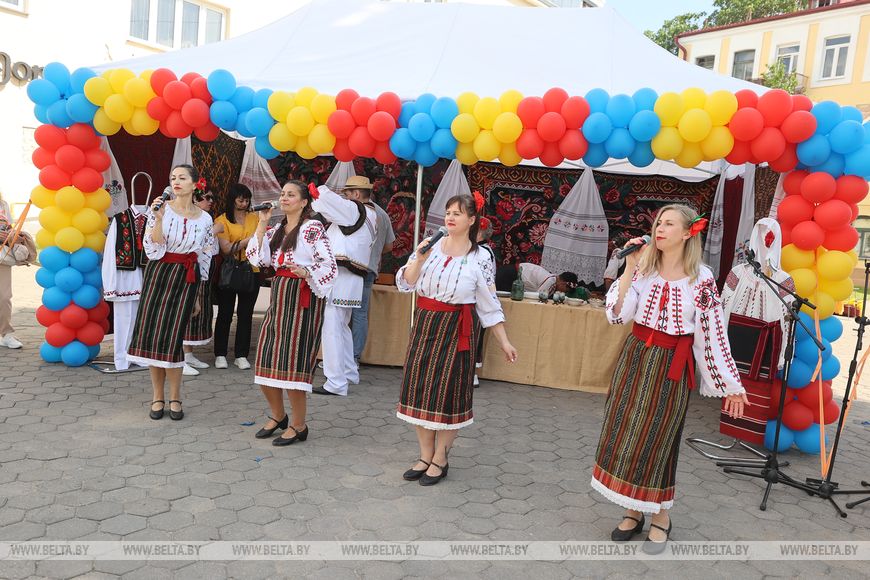
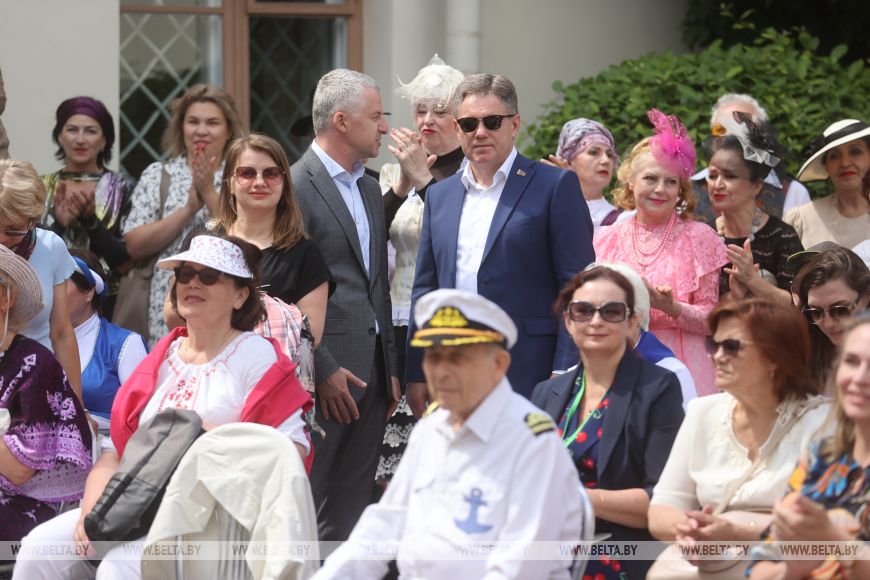
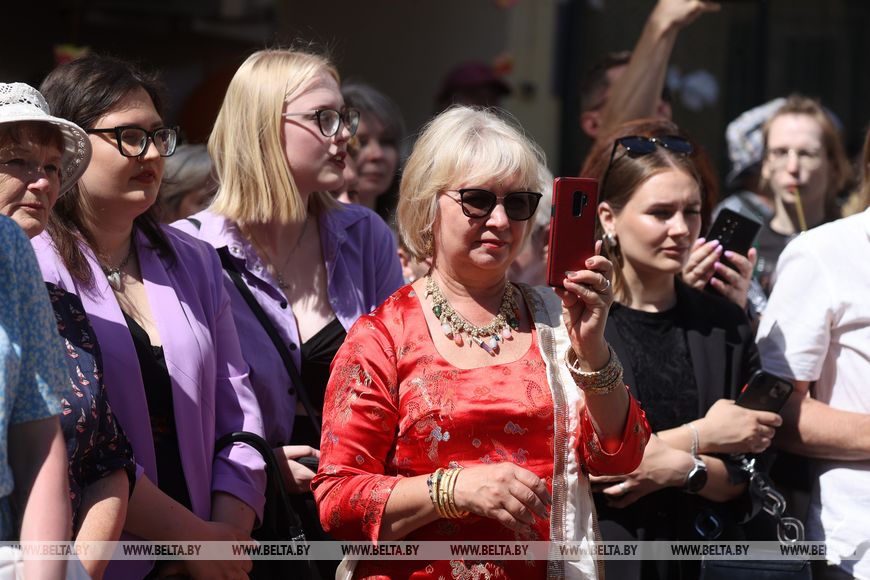
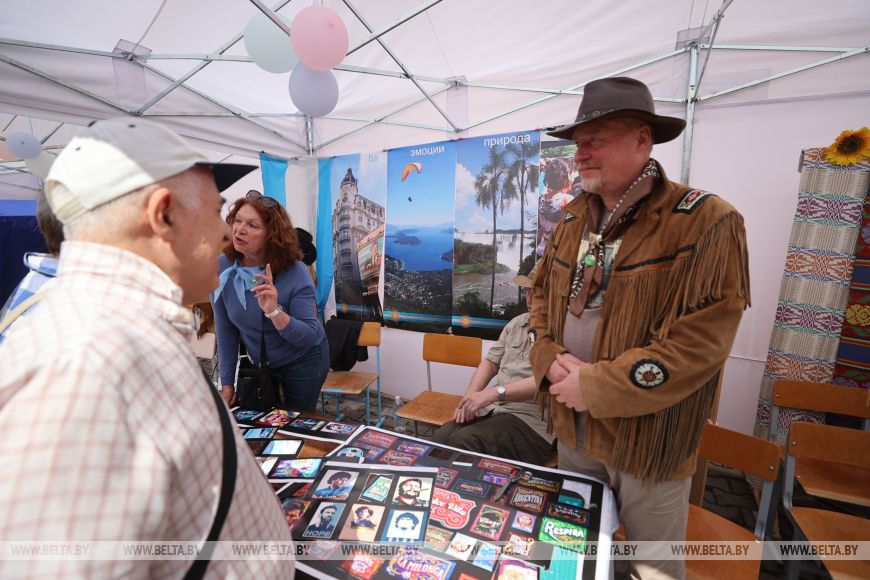
"I must say that the festival is expanding, featuring more and more diasporas. The holiday is adding more colors," Dzhenetta shared her impressions.
The woman also noted the excellent organization: "Everything is top-notch. The organizers are accommodating, very polite and professional."
Dzhenetta Dmitrenko believes that for guests and residents of Grodno, the Festival of National Cultures is a great opportunity to learn more about the traditions and customs of various peoples of the world. "It's wonderful that people get positive emotions, relaxing and enjoying themselves," she said.
Photos by Leonid Shcheglov, Tatiana Matusevich/BelTA




